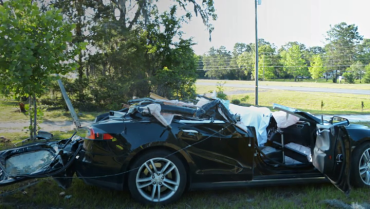Good-enough
 A couple of months on from Amazon's synthesized personal voices, it was intriguing to read this week, in the Financial Times ($) (thanks to Charles Arthur's The Overspill), that several AI startups are threatening voice actors's employment prospects. Actors Equity is campaigning to extend legal protection to the material computers synthesize from actors' voices and likeness that, as Equity puts it, "reproduces performances without generating a 'recording' or a 'copy'." The union's survey found that 65 of performance artists and 93% of audio artists thought AI voices pose a threat to their livelihood.
A couple of months on from Amazon's synthesized personal voices, it was intriguing to read this week, in the Financial Times ($) (thanks to Charles Arthur's The Overspill), that several AI startups are threatening voice actors's employment prospects. Actors Equity is campaigning to extend legal protection to the material computers synthesize from actors' voices and likeness that, as Equity puts it, "reproduces performances without generating a 'recording' or a 'copy'." The union's survey found that 65 of performance artists and 93% of audio artists thought AI voices pose a threat to their livelihood.
Voices gives a breakdown of their assignmenets. Fortuitously, most jobs seek "real person" acting - exactly where voice synthesizers fail. For many situations, though - railway announcements, customer service, marketing campaigns - "real person" is overkill. Plus, AI voices, the FT notes, "can be made to say anything at the push of a button". No moral qualms need apply.
We have seen this movie before. This is a more personalized version of appropriating our data in order to develop automated systems - think Google's language translation, developed from billions of human-translated web pages, or the cooption of images posted on Flickr to build facial recognition systems later used to identify deportees. More immediately pertinent are the stories of Susan Bennett, the actress whose voice was Siri 2011, and Jen Taylor, the voice of Microsoft's Cortana. Bennett reportedly had no idea that the phrases and sentences she'd spent so many hours recording were in use until a friend emailed. Shouldn't she have the right to object- or to royalties?
Freelance writers have been here: the 1990s saw an industry-wide shift from first-rights contracts under which we controlled our work and licensed one-time use to all-rights contracts that awarded ownership in perpetuity to a shrinking number of conglomerating publishers. Photographers have been here, watching as the ecosystem of small, dedicated agencies that cared about them got merged into Corbis and Getty while their work opportunities shrank under the confluence of digital cameras, smartphones, and social media. Translators, especially, have been here: while the most complex jobs require humans, for many uses machine translation is good enough. It's actors' "good-enough" ground that is threatened.
Like so many technologies, personalized voice synthesis started with noble intentions - to help people who'd lost their own voices to injury or illness. The new crop of companies the FT identifies are profit-focused; as so often, it's not the technology itself, but the rapidly decreasing cost that's making trouble.
First historical anecdote: Steve Williams, animation director for the 1991 film Terminator 2, warned the London Film Festival that it would soon be impossible to distinguish virtual reality from physical reality. Dead presidents would appear live on the news and Cary Grant would make new movies, Obvious result: just as musicians compete against the entire back catalogue of recorded music, might actors now be up against long-dead stars when auditioning for a role?
Second historical anecdote: in 1993, Silicon Graphics, then leading the field of computer graphics, in collaboration with sensor specialist SimGraphics, presented VActor, a system that captured measurements of body movements from live actors and turned them into computer simulations. Creating a few minutes of the liquid metal man (Robert Patrick) in Terminator 2, although a similar process, took 50 animators a year. VActor was faster and much cheaper at producting a reusable library of "good-enough" expressions and body movements. At the time, the company envisioned the system's use for presentations at exhibitions and trade shows and even talk shows. Prior art: Max Headroom 1987-1988, In 2022, SimGraphics is still offering "real-time interactive characters" - these days, for the metaverse. Its website says VActor, now "AI-VActor", is successfully animating Mario.
Third historical anecdote: in 1997, Fred Astaire, despite being dead at the time, appeared in ads performing some of his most memorable dance moves with a Dirt Devil vacuum cleaner. The ad used CGI to replace two of his dance partners - a mop, a hat rack. If old Cary Grant did have career prospects, they were now lost: the public *hated* the ad. Among the objectors was Astaire's daughter, who returned one of the company's vacuum cleaners with a letter that siad, in part, "Yes, he did dance with a mop but he wasn't selling that mop and it was his own idea " The public at large agreed: Astaire's extraordinary artistry deserved better than an afterlife as a shill.
Today, voice actors really could find themselves competing for work against synthesized versions of themselves. Equity's approach seems to be to push to extend copyright so that performers will get royalties for future reuse. Actors might, however, be better served by the personality rights as granted in some jurisdictions (not the UK). This right helped Cheers actors George Wendt and John Ratzenberger win when they sued and won against a company that created robots that looked like them, and the one Bette Midler used when the singer in an ad fooled people into thinking she herself was singing.
The bottom line: a tough profession looks like getting even tougher. As Michael (Dustin Hoffman) says in Tootsie (written by Murray Schisgal and Larry Gelbart), "I don't believe in Hell. I believe in unemployment, but I don't believe in Hell."
Illustrations:: The Big Bang Theory's Rajesh (Kumal Nayyar) tries to date Siri (Becky O'Donahue).
Wendy M. Grossman is the 2013 winner of the Enigma Award. Her Web site has an extensive archive of her books, articles, and music, and an archive of earlier columns in this series. Stories about the border wars between cyberspace and real life are posted occasionally during the week at the net.wars Pinboard - or follow on Twitter.
 Years ago, an alarmist book about cybersecurity threats concluded with the suggestion that attackers' expertise at planting backdoors could result in a "zero day" when, at an attacker-specified time, all the world's computers could be shut down simultaneously.
Years ago, an alarmist book about cybersecurity threats concluded with the suggestion that attackers' expertise at planting backdoors could result in a "zero day" when, at an attacker-specified time, all the world's computers could be shut down simultaneously. It's easy to say
It's easy to say 